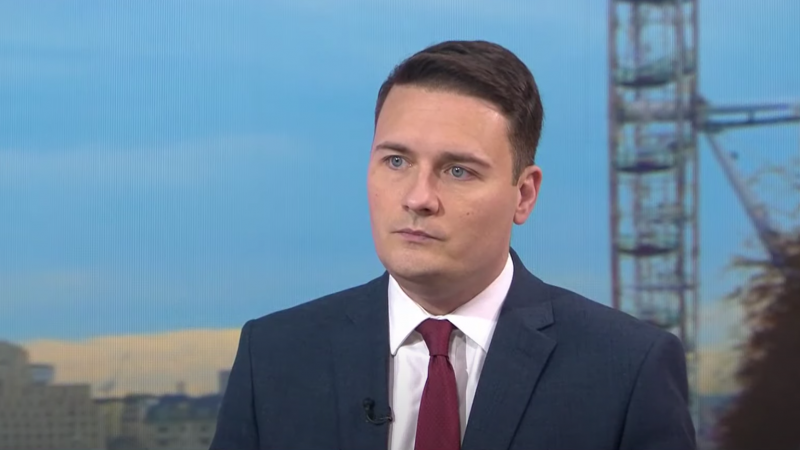
Wes Streeting has warned that many people will be “plunged into poverty” as a result of the rising cost of living and echoed the concerns of NHS leaders about the potential impact of the crisis on public health.
In a letter sent to Nadhim Zahawi today, the NHS Confederation urged the government to take “urgent and direct additional action” to support people with their energy bills to prevent a “public health emergency” that would leave an “indelible scar” on local communities.
The Shadow Health Secretary said: “Families are really worried about how they are going to afford soaring energy bills this winter. Many will be plunged into poverty by this cost-of-living crisis and be forced to make choices between eating and heating.
“NHS leaders are absolutely right to raise concerns about the impact on health. The vaccines minister has admitted that elderly people unable to heat their homes this winter will be at greater risk of flu and other illnesses.
“Labour would freeze energy bills this winter, saving households £1,000. We will pay for it with a windfall tax on the excess profits of oil and gas companies, who are making more money than they know what to do with.”
The letter to the Chancellor stated that NHS leaders fear that many people will face the “awful choice of skipping meals to heat their homes or having to put up with living in cold, damp, conditions” as a result of the rising cost of energy.
It continued: “From a health perspective, this will inevitably lead to more illness up and down the country. It will lead to worse health outcomes, including damaging children’s life chances, as well as exacerbating health inequalities that have already been widened as a result of the pandemic.
“If people cannot afford to heat their homes sufficiently and if they cannot afford nutritious food, then their health will quickly deteriorate. This will increase the already high number of annual deaths associated with cold homes – estimated at around 10,000 a year.
“As health leaders, we are clear that unless urgent action is taken by government this will leave an indelible scar on local communities and cause a public health emergency.”
“We therefore urge you to set out a more targeted and detailed support package for those households who need it most in advance of the decision on the new energy price cap next week,” the letter concluded.
NHS Confederation chief executive Matthew Taylor said: “The country is facing a humanitarian crisis. Many people could face the awful choice between skipping meals to heat their homes and having to live in cold, damp and very unpleasant conditions.
“This in turn could lead to outbreaks of illness and sickness around the country and widen health inequalities, worsen children’s life chances and leave an indelible scar on local communities. These outbreaks will strike just as the NHS is likely to experience the most difficult winter on record.
“NHS leaders have made this unprecedented intervention as they know that fuel poverty will inevitably lead to significant extra demand on what are already very fragile services. Health leaders are clear that unless urgent action is taken by the government this will cause a public health emergency.”
Asked this week whether more people could die this winter if they could not afford to heat their homes, vaccines minister Maggie Throup told LBC: “That is a concern, it’s something that we’ve taken into consideration when we looked at our vaccination programmes.”
“People who perhaps don’t heat their homes as much will be more vulnerable. And that’s why, as I say, we’re putting that ring of protection around the most vulnerable with our vaccine programme,” the government minister added.
Labour set out measures to support households with the rising cost of energy on Monday. The opposition announced that it would freeze gas and electricity prices immediately, keeping the energy price cap at its current level of £1,971 until April – a move it said would save the typical household £1,000.
The opposition has demanded that parliament be recalled early from summer recess in order to pass legislation to freeze energy bills before the announcement of the new energy price cap, which is due on August 26th.
Analysts at Cornwall Insight predicted last week that average energy bills could increase to £3,582 in October and rise to more than £4,200 in January next year.
A study by the University of York, published on Thursday, estimated that two-thirds of UK households are currently set to fall into fuel poverty by January next year – equivalent to 45 million people.




More from LabourList
Antonia Romeo appointed to lead civil service as new Cabinet Secretary
‘If Labour is serious about upskilling Britain, it must mobilise local businesses’
Stella Tsantekidou column: ‘What are we to make of the Labour Together scandal?’